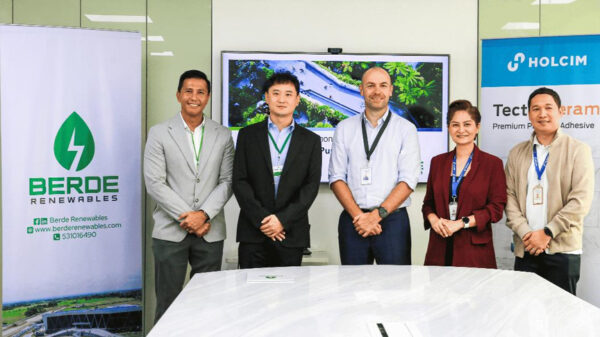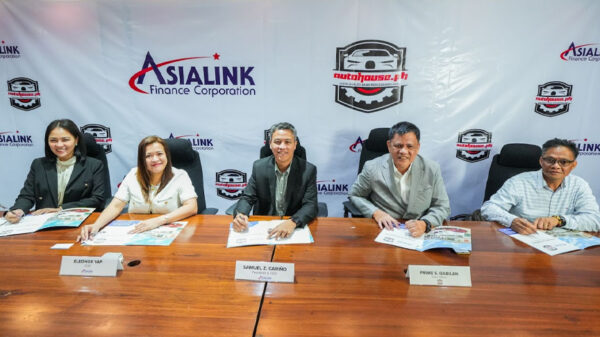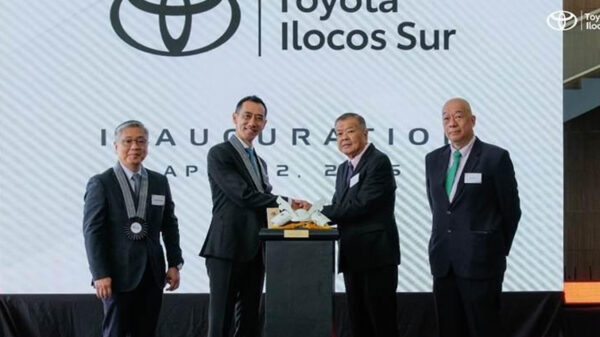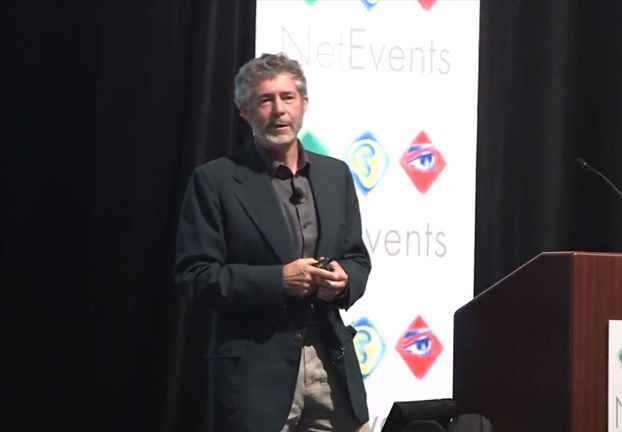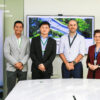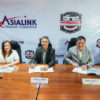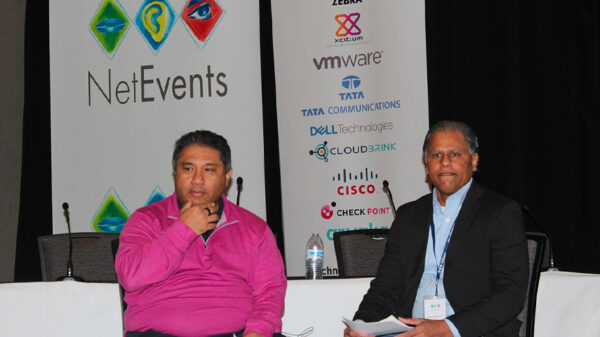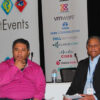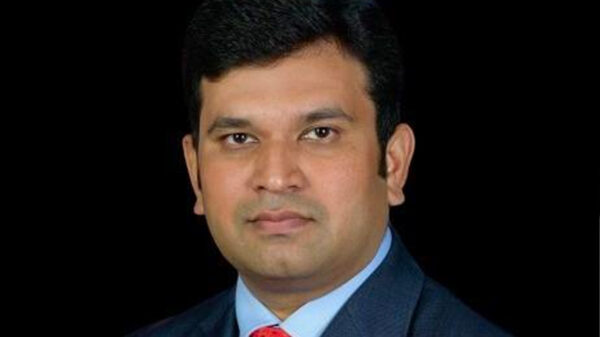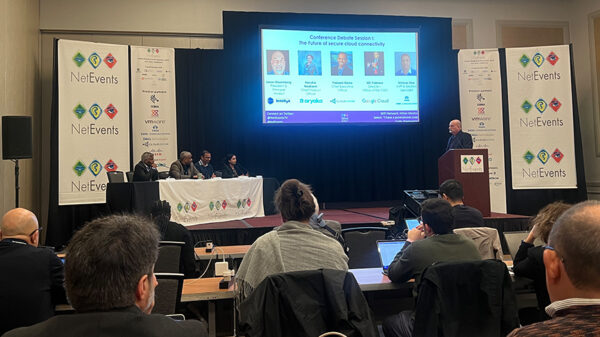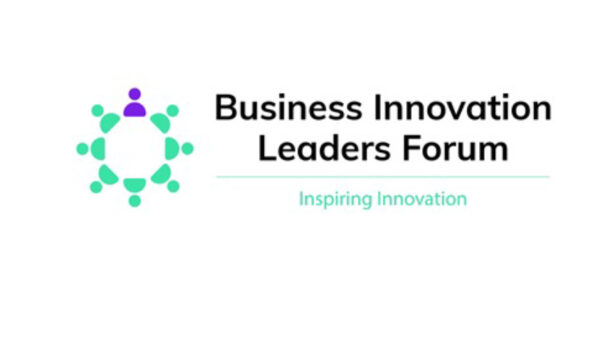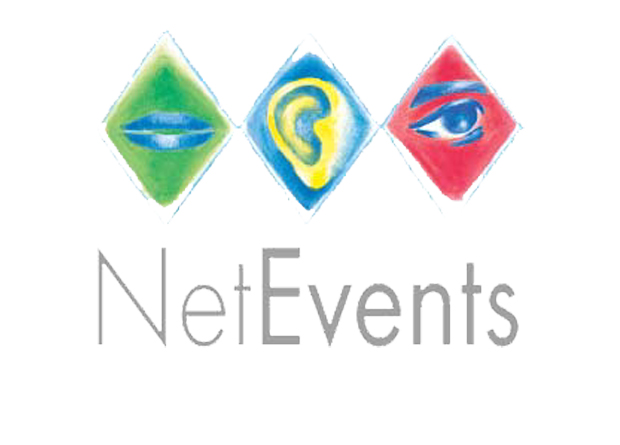By Mark Fox
Founder, NetEvents
David Cheriton isn’t your ordinary college professor. For one thing, he’s super-smart – which you’d expect for someone who has taught computer science at Stanford University in Palo Alto, California. since 1981. He’s also a very successful investor, entrepreneur, and philanthropist, with an eye toward important ideas — and for great teams that can invent industries and change the world.
Cheriton, who created the Distributed Systems Group at Stanford, is arguably best known as an advisor to Sergey Brin and Larry Page, who created Google. Cheriton was also one of the first investors in Google, and co-founded or invested in firms as diverse as Granite Systems (acquired by Cisco Systems), VMware, Kealia (later purchased by Sun Microsystems, now part of Oracle), Arista Networks (went public), Aster Data Systems (acquired by Teradata), and most recently Apstra, where he serves as chief scientist.
The bottom line is that all this activity actually drives the bottom line: Cheriton has become a billionaire, and recently presented the keynote at the NetEvents Global Press & Analyst Summit, in San Jose, California. He explained a bit of his history, and how he decides where to invest his time and treasure.
Cheriton recently joined his current venture, Apstra, which offers the industry’s first Intent-Based Networking system – a vendor-agnostic, intent-based Self-Operating Network for the data center network featuring closed-loop telemetry. “I’m the chief scientist there. I’m a co-founder of the company. I am the investor, because there’s no outside investment at this point,” he says. “Apstra is a good example of how I approach investing and start-ups.”
Today’s Example: Apstra
When evaluating a company, Cheriton said, “I look for more than one reason to do things.” With Apstra, he saw converging trends in the data center industry that are driving automation. “There’s a huge operating cost to running networks. There’s a need for greater reliability in the networks and greater agility to adapt to new services. There’s also APIs that let programs talk to the switches.”
Another trend: Companies are building networks out of switches from different vendors, and breaking away from the classic single-vendor network model. That makes it more complicated to manage these networks, and more perilous if there’s a problem. “Your whole company runs on the network. If the network fails your whole company fails. If your network is slightly sick your whole company can be quite sick. It’s a business impact,” Cheriton says.
Then finally there are proof points about the value of automating network operations out of companies such as Google that have invested a lot in automating their network infrastructure. “So all of these aspects converged to say there was an opportunity to do something in the start-up space there,” explains Cheriton.
People are key, adds Cheriton. “You can’t do things without good people that have the right background. I was approached by Mansour Karam, who I worked with previously at Arista, and knew from Stanford as well as Sasha Ratkovic who has a great background in network management, and was a fellow at Juniper Networks for a number of years.” Karam is CEO of Apstra, and Ratkovic is CTO.
And, as you’d expect of a Stanford computer science professor, there must be an interesting problem. Cheriton found that in Apstra. “The problems from a technical standpoint are really up my alley. Mansour needed to build what I call a distributed operating system, something that was distributed because a network itself is highly distributed. This has been my research focus for my entire career at Stanford.”
That’s why Cheriton says that Apstra was an opportunity too good to pass up on. So good, in fact, he funded the entire company himself, as well as signing on as the startup’s chief scientist.
It Started with Sun Workstations
That leads to the question: How can Cheriton afford to fund companies like Apstra? It all started when he was an assistant professor at Stanford, and encountered a student there, Andy Bechtolsheim, who was building the Sun workstation. (Sun meant “Stanford University Network,” before the company Sun Microsystems was formed.)
“He was doing neat stuff so I started working with him and developed some software for his hardware, found a hardware bug and so on,” says Cheriton. “I then bought a bunch of the early Sun workstations for my research project.”
Bechtolsheim later founded Sun Microsystems, which became a leading workstation vendor. Later, in 1994, Bechtolsheim called Cheriton and invited him to help develop a startup — Granite Systems – that developed Gigabit Ethernet switches. “We thought Ethernet was the right way to go. He knew hardware. I knew networking and software. We put ourselves together and developed this technology.”
Two years later, Granite was purchased by Cisco, and Cheriton went with the acquisition. “I spent seven years at Cisco as a technical advisor. I got a lot of publicity out of – here’s a professor involved in a start-up that gets bought by Cisco for a lot of money, and so on.”
“Back at Stanford I met this guy, a PhD student, Sergey Brin, because we were both rollerblading. He was rollerblading, I was rollerblading inside the computer science building. So we knew each other only as fellow rollerbladers. But at one point they came to me for advice about their search technology. What they wanted to do was licence it. So I helped them and pointed them at an IP lawyer I knew in the Valley and so on.”
It was a very happy encounter on both sides, because Cheriton and Bechtolsheim jointly went on to help raise the initial seed round for Google. “I recognized the value in this because the web was growing at an unbelievable rate,” says Cheriton. “Google wasn’t the first search engine but all the other search engines had been compromised by becoming Internet portals, and also the results were terrible. Google was just clearly head and shoulders above everything else.”
Cheriton was an early investor in VMware, which was a pioneer in letting users run multiple Windows instances on a single server without destabilizing the operating systems or having the applications interfere with each other. “I was involved in hiring Mendel Rosenblum, one of the founders of VMware, at Stanford… Mendel was a good pick for a faculty member.”
Getting to know Mendel was another happy chance. Cheriton initially met his wife Diane Green through a shared love of windsurfing: “I’m glad that I stayed friends with Mendel because I’d take off with his wife in the San Francisco Bay and he was kind of left behind. At any rate we got to know each other.”
Another startup, Arista he describes as “yet another switching company… I’m trying to emphasise that it’s not necessarily the first company that does something that wins here.” It began with an idea to help his PhD student, Depang Zhou, who wanted to launch a startup. They recruited a terrific team, but began to see they were backing the wrong product: “We did a pivot on this. I think a lot of the pivot was really orchestrated by Andy Bechtolsheim who recognised that 10 gigabit Ethernet was really happening… cloud computing was taking off and there was a need for a next generation kind of switch.”
“When I got out of Arista I was planning to go back to academia,” remember Cheriton, but “this Apstra opportunity came along. One of the things I find fascinating about networking is it’s down in the plumbing. Networking simple enough in its basic principle to explain to your parents. But it’s surprisingly complicated when you actually look at all the bells, whistles, features and all the things that people do plus the complex dynamics that take place there.”
What About the Cloud? Public or Private?
Who cares about data centers when every company is moving to the cloud? “The biggest concern that people raised when I mentioned I was planning to do Apstra was this view, well everything is moving to the public cloud so there won’t be any market.”
Indeed, Cheriton says, the widely held belief was that, “Nobody’s going to manage their own network. They’re going to hand it all over to our friend Jeff Bezos.”
Bezos is the founder and CEO of Amazon, which offers one of the largest available cloud services, Amazon Web Services, or AWS.
“We’ve ended up in a bit of a medieval computing landscape,” says Cheriton, “because you have Jeff Bezos who’s built this walled garden if you like, called AWS, which is a castle. He basically says, come under my protection and you will be safe. Ha ha ha.”
The problem, says Cheriton: If you rely upon AWS, you’re stuck. “In medieval days, people felt that the highwaymen were a problem. They weren’t a problem. They were part of the king’s overall plan. The king builds this castle, the peasants are beholden to the king because the king protects them from the highwaymen.”
Similarly, says Cheriton, AWS is promoted as public cloud. He disputes that definition as misleading. “What does public mean? It means that if you pay for it you can use it. Well, by that definition I claim Disneyland as a public park because you can pay and you can go in and use it. So public cloud is a complete misnomer.”
A problem is the number of services offered on AWS. “What people are learning is those services are there for lock-in. They’re not all that useful,” says Cheriton. “You find these start-ups and big companies end up where they develop some application and it’s using 100 of Jeff Bezos’ little services that are unique to AWS.” And they are locked in.
And locked in to a huge AWS monthly expense. “Some of the bills I’ve seen are enormous, unbelievable, $1 million a month easily and upwards,” explains Cheriton. “It’s very hard to move that application because it’s highly dependent on that service. So you can’t get off of AWS without re-writing the application.”
The alternative? The private cloud, says Cheriton. “You can get the same efficiencies as Jeff Bezos, more or less, buying your own hardware except for how you operate it. So what separates the efficiency of your operations from AWS is purely automation.”
Three Waves of Computing Driven by Automation
“We’re in this very exciting time of pervasive automation which you might consider the third wave of computing where the first wave was human productivity,” Cheriton continues. “The first wave was the productivity line of [Microsoft] Office Suite and so on. You’re going to write a letter. How do you make it more efficient than having to redraft it when there’s a spelling mistake? Well use Word and it has spell check.”
The second wave was human connectivity. “Remember when Ma Bell was the only way to communicate in real time? Now the internet has created an enormous number of alternatives,” says Cheriton. “I was going to call the third wave human automation. But somehow it didn’t sound quite right. But I think the third wave is this pervasive automation of things we normally associate with human beings having to do.”
Cheriton suggests that Uber and Waymo are automating transportation, while Caterpillar is making self-driving bulldozers. Airbnb is automating hospitality. And of course, Cheriton’s Apstra is automating data center management. “So we’re seeing this whole trend to automating a whole bunch of things,” he says. “None of this is easy but it’s incredibly valuable to do.”
You, Too, Can Be a Billionaire Professor
Be prepared, says Cheriton, quoting Louis Pasteur: “Fortune favors the prepared mind.” He was prepared, he said, by treating students well, by recognizing the smart students, and by starting companies with them.
If you want to be like David Cheriton, “Get a position at Stanford 35 years ago and run with it, I guess,” he laughs. “We live in incredibly transformative times which is great because there are enormous opportunities. But like I say, so was the American Revolution. You want to be on the right side of history because the wrong side is fairly painful.”
He boiled down his business and investment tips as:
- Never invest in something where you can’t identify the real value that it adds to the industry, or to society. “I’ve missed out on a lot of great investments because of this thinking. So take it with a grain of salt.”
- Never invest in a start-up that only exists for one reason. “I’ve seen so many cases where the one reason goes away. So you want multiple reasons. To me, three is the first large number. So there should be three good reasons.”
- Never invest in anything you can’t explain to your mother. “People come to me with ideas for a companies and I can’t figure out how you’d ever explain it to a non-technical person.”
- Don’t sweat first-mover advantage. “A lot of the first movers are often the first losers. Arista was not the first switch company. Google was not the first search engine company.” And VMware wasn’t the first virtualization company.
- It’s all about execution. “So the important thing is how well you execute. What you kill off and what you keep and how you go about doing it.”
Cheriton concluded with the advice: Choose your friends well. “I’ve benefited enormously from the friends that I’ve developed over the years in Silicon Valley.” And be prepared for the next great opportunity that you can explain to your mother.




